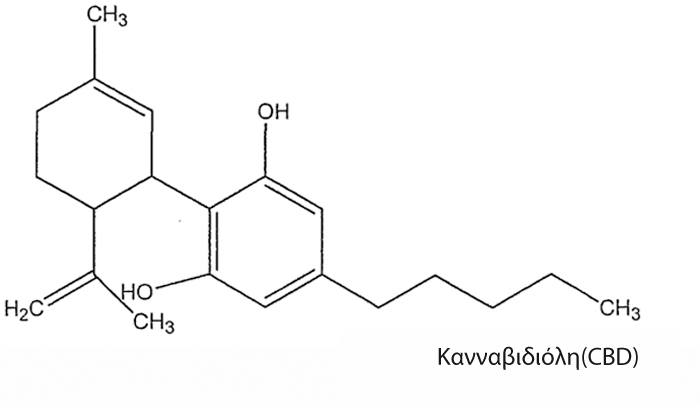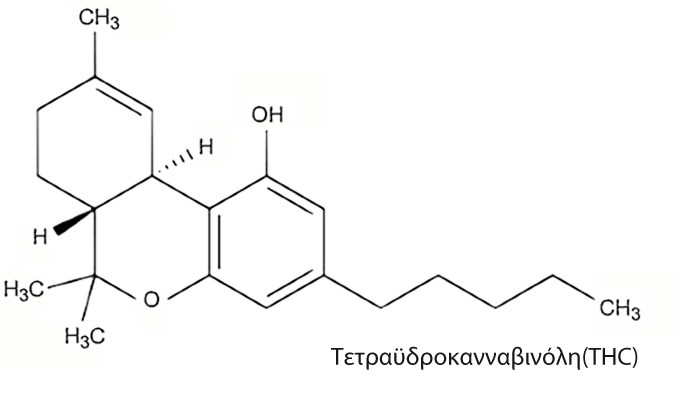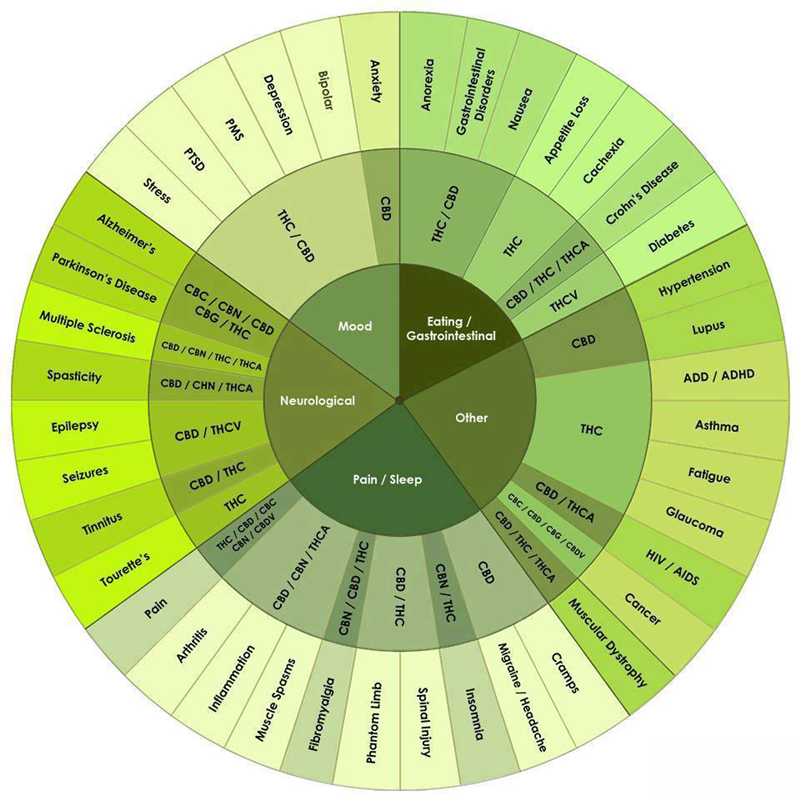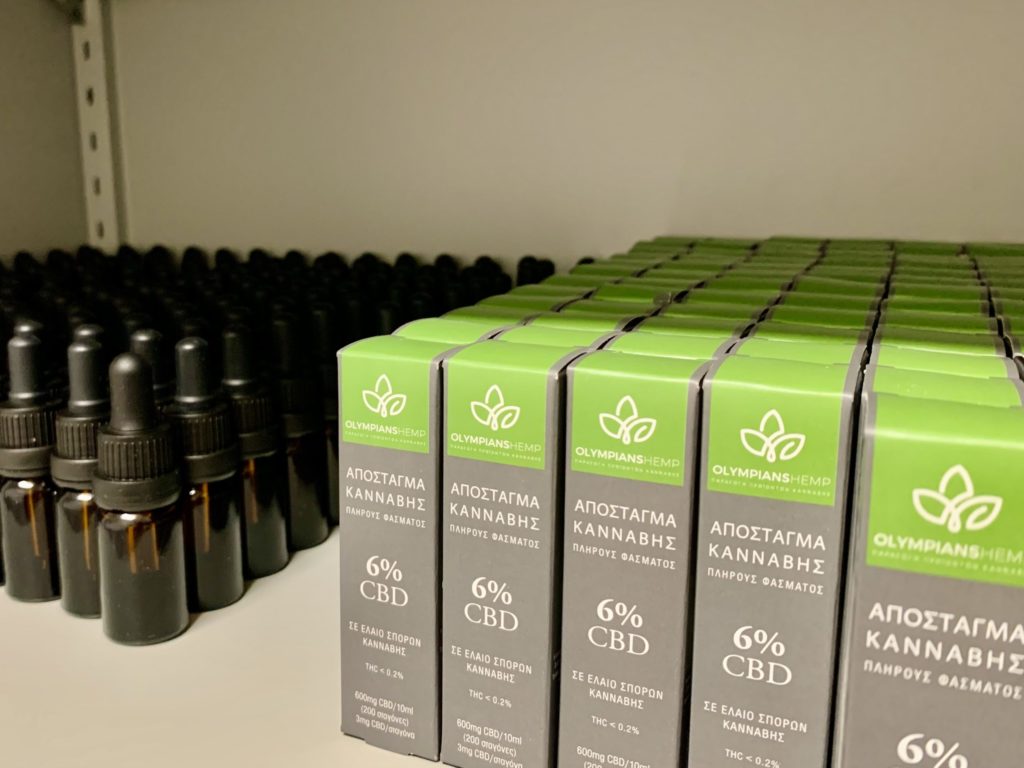THE CANNABINOIDS
Cannabinoids are natural compounds with beneficial and therapeutic effects on the human body that are divided into two categories: phytocannabinoids and endocannabinoids.
Phytocannabinoids are produced in plant organisms, such as cacao tree, echinacea, and black truffle, but in the largest variety and content, they are found only in the cannabis plant. Cannabis contains over 100 different cannabinoid compounds, such as Cannabigerol (CBG), Cannabichromene (CBN) and Tetrahydrocannabinolic Acid (THCA) and the most notably of all, Cannabidiol (CBD) and Tetrahydrocannabinol (THC). In fact, the high concentration of Tetrahydrocannabinol (THC) is the cause of the euphoric use of certain varieties of cannabis. CBD and THC are considered to be the two most important cannabinoids because, according to studies, their administration to human body appears to yield the greatest therapeutic benefits over the rest of the phytocannabinoids.


Endocannabinoids are compounds produced by the human body, catalyzing important daily processes through the endocannabinoid system (ECS). Cannabinoid receptor sites constitute the endocannabinoid system of the organism and are summarized in two distinct types: CB1 and CB2. The CB1 receptors are localized primarily in the brain and secondarily in the kidneys, lungs, and liver while the CB2 receptors are mainly localized in the immune system.
The role of the endocannabinoid system is to maintain the homeostasis of the organism, ensuring a balanced performance of basic organic and mental processes such as the control of temperature and ph, neuroprotection and motor coordination, appetite and mood regulation, memory and pain control.
CBD
- 100% herbal product as it is extracted from the cannabis plant (Cannabis Sativa L with THC content less than 0.2%).
- It does not have a psychotropic effect on the human body and is not included in the list of drugs in Greece.
- Strengthens and restores the smooth functioning of the body’s endocannabinoid system and increases the production of endocannabinoids, thus contributing to both maintaining and restoring the balanced functioning of the body.
- Proven to be the best treatment for epilepsy and epileptic seizures. According to scientific studies, the use of CBD reduced 80-90% the incidence and intensity of epileptic seizures in patients while it was exceptionally good for young children. Still, CBD administration is indicated in the fight against certain forms of cancer as it neutralizes tumors and cancer cells, while also helping to treat and mitigate many neurological and mental illnesses, such as Alzheimer’s and anxiety disorder.
- Antipsychotic activity, so it can even diminish and counteract the psychotropic effect of THC on the human body. Therefore, CBD is administered, in appropriate proportion, along with THC for the treatment of severe organic and psychiatric diseases, such as Crohn’s disease and depression.
- The disposal and consumption of edible and medicinal products containing CBD, derived from the Cannabis Sativa L plant with THC content less than 0.2%, are absolutely legal in Greece.
THC
- 100% herbal product as it is extracted from the Cannabis Sativa L plant with THC content above than 0.2%.
- It has a psychoactive effect on human body and is the cause of the recreational, euphoric use of certain plant species, such as Cannabis Indica.
- Interacts primarily with the CB1 receptors of the endocannabinoid system, which are mainly in the brain, thus, in addition to the euphoric mood it offers, it can be used as a powerful analgesic and insomnia relaxing compound. Still, it has beneficial effects on eating disorders, such as anorexia nervosa, it is anti-emetic and is given to AIDS disease as a stimulant for appetite against significant weight loss.
- Anticancer activity is scientifically investigated. According to a study published in BioMed Central Cancer in 2016, and was related to leukemia disease, THC was found to be extremely effective in reducing proliferation while increasing self-destruction of cancer cells. A similar study, published in 2006 in Molecular Cancer Research, also notes that THC can lead to “suicide” of cancer cells since it causes their apoptosis, a characteristic property of any successful cancer drug. Finally, according to research into the potential use of cannabinoids as anticancer agents, published in ScienceDirect in 2016, in some forms of cancer, THC can work against metastasis, since it prevents infected cells from infecting other areas while destroying the tumor, preventing diseased cells from producing new blood vessels.
- The production and disposal of medical cannabis final products (Cannabis Sativa L with THC content above 0.2%) in patients for medical purposes, exclusively through the state monopoly, was legislated in Greece in the spring of 2018 and is expected to begin shortly.
Cannabinoids and their action play a crucial role in the vital and smooth functioning of human body. That fact confirms the hypothesis that cannabis, in addition to the euphoric use of certain varieties that have stigmatized it, can provide humans with pure and high-quality natural products that may be called superfoods or medicines.
Through recent years, the global scientific community has been studying systematically and thoroughly the beneficial effects of the two most well-known and important cannabinoids, Cannabidiol (CBD) and Tetrahydrocannabinol (THC), on major human diseases such as neurological and autoimmune diseases (Parkinson’s disease, multiple sclerosis), carcinogenesis and psychiatric disorders (Depression, Bipolar Disorder).
Industrial Cannabis (variety Cannabis Sativa L) has a high Cannabinol (CBD) content and a low content, less than 0.2%, in Tetrahydrocannabinol (THC) and therefore has no euphoric, psychoactive effect on human body. Medical Cannabis (Cannabis Sativa L with THC content above 0.2%) due to the pharmaceutical properties of THC is prescribed in some patients in suitable combination and proportion to other cannabinoids.



